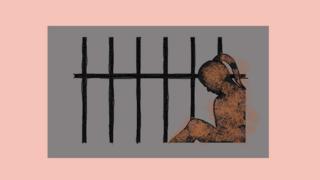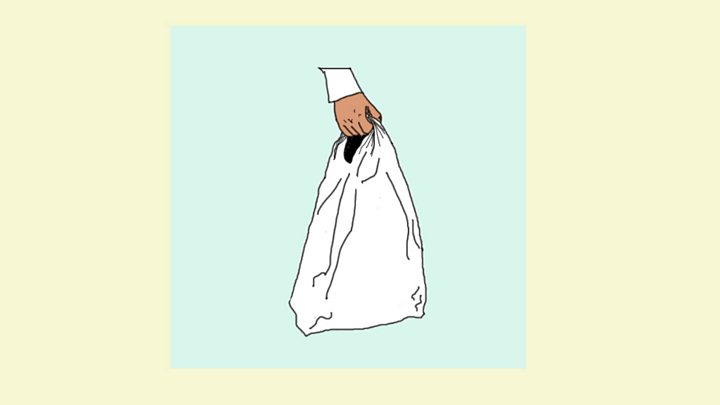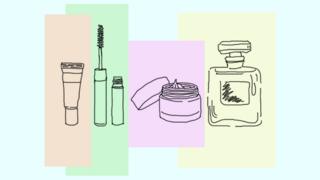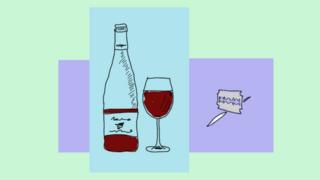
How do you break the cycle of offending? Pat, 52, has been in and out of prison for her entire adult life, but now she thinks she can stay out for good.
I remember the night before I left prison for the last time so clearly. I was filled with so much anxiety, fear and doubt. I remember being in that cell and not being able to sleep. I had this crazy urge to clean everything – I wanted it to be clean for the next woman that came in there, because I know how it feels to walk into a cell that’s dirty and messy, feeling like doom, feeling like your life has ended. So it was really important for me to leave that room clean.
Although I was really excited and wanting to go, I was so afraid. I felt really anxious because I’d been there so many times, waiting for that door to open, waiting for them to say: “Are you ready Pat? It’s time to go.”
I was wondering what was going to happen to me. Where would I go? Would I stay out this time?
I’d been in and out of prison since I was 19. I’ve lost count of how many sentences, but it must be more than 15.
My lifestyle, being on the streets, doing drink and drugs, always led me to going back to prison – and was also the reason my kids went into adoption and foster care.
On the morning of my release I was wearing my jeans and I had put my books and stuff in a plastic bag. They came to get me at about 05:30 in the morning.

I got to reception and was released. They gave me my bag and some money – 48. Not a lot, it’s only intended to tide you over until your benefits get sorted out, and it never lasts very long. But having lived on 5.50 a week, it was like winning the lottery! I felt rich.
Luckily I wasn’t using [drugs] when I left – if I was, it would have been finished in no time and I would have been back to square one.
This time, all I wanted to buy was some nice toiletries, nice creams and stuff, because I couldn’t afford that while I was in prison. I just wanted to smell like a human being again.

I remember sitting in the waiting room, before we were taken to the gates. That was really nerve-wracking because I was in there with a lot of other women and they were talking about going to get a drink, going to see their boyfriends and having a nice time – some were talking about going to get more drugs.
I was listening, thinking: “That is not what I want. I’m going out there to fight for my life.”
I was going out there to start afresh. I was scared as hell.
I knew that if there wasn’t anyone waiting for me out there I’d be gone. I wouldn’t have made it, I wouldn’t be here today. At one point I was thinking: “This is a test – if you go out there and the people who are meant to help are not there to meet you, it’s a sign that you are supposed to be an addict for the rest of your life.”
Find out more
In a new series, Woman’s Hour is speaking to women about leaving prison.
- Listen to Sarah as she leaves prison in Durham
- Listen to Pat’s interview in full
- More on the Woman’s Hour website
I had tried to get clean before, but always relapsed.
Before my last sentence in 2015 I was in supported housing, but I felt very lonely. I felt like I was in this world on my own and no-one really cared. Then I made the mistake of getting in contact with an ex-partner, which was not a good idea. Before I knew it, I was using again – crack cocaine, heroin and alcohol. I felt ashamed and I didn’t want to own up to the organisation where I was living, so I stayed away.
Before I knew it I was back on the streets of Bristol as a sex worker, something I had always done to support my drug habit. One night I told another working girl that I was really cold – I didn’t have many clothes. “Come to the van,” she said.

The van was run by an organisation called the One25 project, who work with street sex workers.
They had a van that went around the streets, where we could just sit and feel safe for a while. We could wash, we could change our clothes. They used to give us condoms, and, in the winter, woolly hats. They’d feed us sandwiches and crisps and it’s such a godsend. When you’re out there at night, the little money you get is for your drink or your fix – food was the last thing on my mind, I just wanted the pain to stop.
Just to be treated like a human being – not a prostitute – overwhelmed me. They were amazing. They gave me a bit of hope. I get so emotional when I think about what they’ve done for me.
This time when I went to prison, thankfully, I was in Gloucester, where the One25 project comes in on a regular basis and one of the workers recognised me. She said: “Pat, is that you?” And I just started crying.
I was in such a state that I was wetting the bed and sleeping underneath it. I was in so much pain and fear and I didn’t even know what I was afraid of any more. But one fear that I did recognise is that the sentence would end and I would have to go back out there. And I just couldn’t face it. The thought of going back out there and standing on a street corner, I just couldn’t bear it.
Thankfully the day I left prison they were there for me, and we went off for a meal, and damn, did I eat! I had chocolate cake and drinking chocolate – a fluffy drinking chocolate, mind.

It was decided I would go into rehabilitation. I didn’t think that I would be eligible because I’d been given that opportunity time and time and time again, and it had never worked. I didn’t think the government would want to fund someone like me, at my age – I’m 52. But they did.
So after our meal they took me to the Nelson Trust, a treatment centre for women who’ve been through traumatic experiences. I stayed there for six months and it changed my life completely. It’s changed the way I think about myself and it’s kind of changed my outlook of what I think people think of me.
I think the most helpful thing was having that compassion and empathy from another woman who’d had similar experiences. It helped me look in the mirror and not just see a prostitute or a drug addict but actually see a beautiful, strong black woman who’s got a lot to give.
They loved me until I could love myself. That’s something I had never been able to do.
Growing up, all I will say is that I was never happy. I never felt right, I always felt the odd one out, the ugly duckling. At 14 I ran away from home. The minute I climbed through that window I stopped being a little girl – I very quickly became an adult, in an adult world.
I roamed the streets from the age of 14 to 19. I remember being caught once for shoplifting and they put me in a children’s home. I was there for about a week before I ran away with another girl. We roamed around Birmingham before I decided London was the place to be.
I had heard so many stories about how in London you could make money, so off I went, and – just my luck – I ran into a pimp. A guy that liked money and liked girls bringing him the money. He had me going round with him while he stole. He taught me how to pickpocket and how to forge.
I felt grown up, I felt like I’d arrived: “This is it, I’ve hit the big time – make money, drive big flash cars, have nice clothes, this is how it’s supposed to be.”
At that time I wasn’t really into drugs, I was just into drinking and making money. But by 20 I’d picked up my first crack pipe and a drug addict was born.
At 21 I got my first sentence – five years, but I got parole. After that, there were only a couple of years when I wasn’t in prison. When I got married I lasted three years, but when my marriage broke down I was straight back in prison.

As I got older my situation outside was getting worse. I didn’t have any real friends, I never had any accommodation, nowhere stable.
Then, about 10 years ago, something changed. I saw my daughter.
I’d been using drugs and woke up quite sick. I needed some heroin and I decided to go to south London to see how much money I could make. I was at a bus stop when someone tapped me on the back. When I turned around she said she was my daughter. Although I didn’t recognise her, she said she recognised me and she’d recognise me anywhere. That was hard.
The last time I’d seen my daughter she was small. The lady that tapped me on the shoulder had grown up. She was beautiful, she had her own family and I didn’t recognise her.
That broke something in me, but I still couldn’t stop drinking or using. People think it’s easy to stop – it’s not. It’s a hard journey back to any form of normality.
Women in prison
- According to the latest Ministry of Justice figures, there are close to 4,000 women in prison – a five-year high
- A Prisons Inspectorate survey found that 38% of women in prison had no accommodation to go to on release
- Figures for 2010 show that 45% of women leaving prison are reconvicted within one year
- For women who have served more than 11 custodial sentences the reoffending rate rises to 75%
Source: Women in Prison
I’ve been out of prison for two years now. I can’t believe it – normally I’m back in by now. But I am out in the community, learning to live among people.
The best thing is that my kids are back in my life. That’s ongoing and will take some time. They’re angry, they’re hurt, and that’s understandable because I’ve never been there for them. My family have also come back into my life – my mother, my stepdad, my sister. That’s something I’ve never had. This is the first time in 34 years that I’ve been able to build a relationship with them.
It’s still very scary but as long as I’m not drinking and using drugs I have a chance.
I don’t want to go back to prison. I wouldn’t survive – it’s not about being beaten up or anything like that, I would just go mad.
I would never have thought that I would be sitting down in clean clothes, clean underwear, with somewhere safe to go back to.
And I’m not in a relationship and that’s a big thing for me, because I’ve been in and out of relationships all my life.
I just feel blessed. And I couldn’t have done it without the support of all these women – and funnily enough I’ve always been so scared of women because I felt like such a failure – crap mum, gives up her children for drugs and alcohol, is always in and out of prison, what kind of woman is that?
Every day I get stronger. My past doesn’t define who I am. I can recover from that life.
Yes, I was broken but I’m not unrepairable. With the help and support of other women I’m slowly being repaired and slowly being brought back to life.
Support for women leaving prison
- One25: support for women trapped in street sex work
- The Nelson Trust: support to women whilst in custody, ‘through the gate’, and into communities
- Open Gate: Supporting women from custody to community
- Women’s Breakout: support for vulnerable women, including those in trouble with the law
- Prison Reform Trust: advice for people currently in prison, and their friends and family
As told to Milly Chowles – Pat’s name was changed to protect her identity
See also: Dying in prison – two women’s stories

